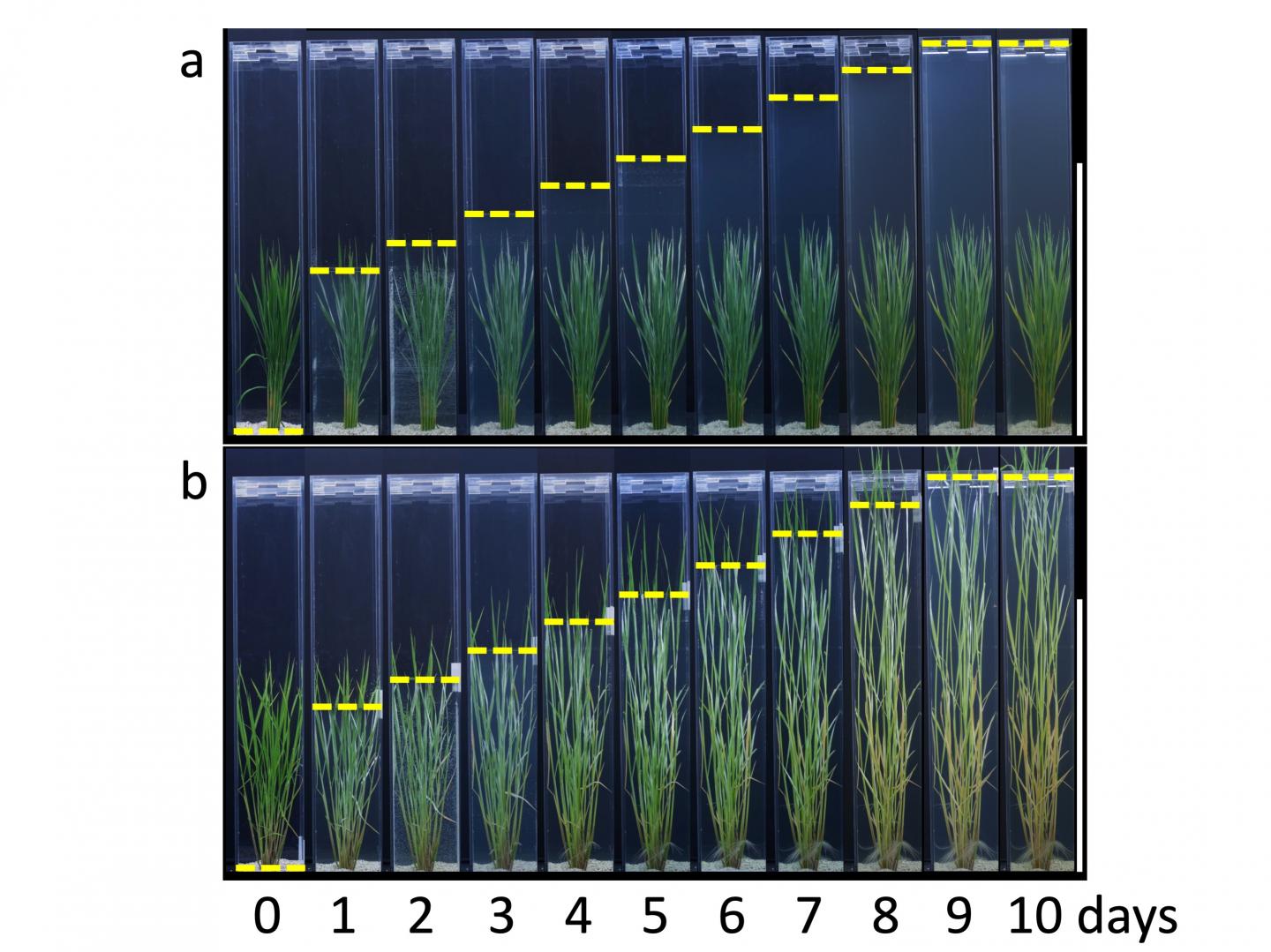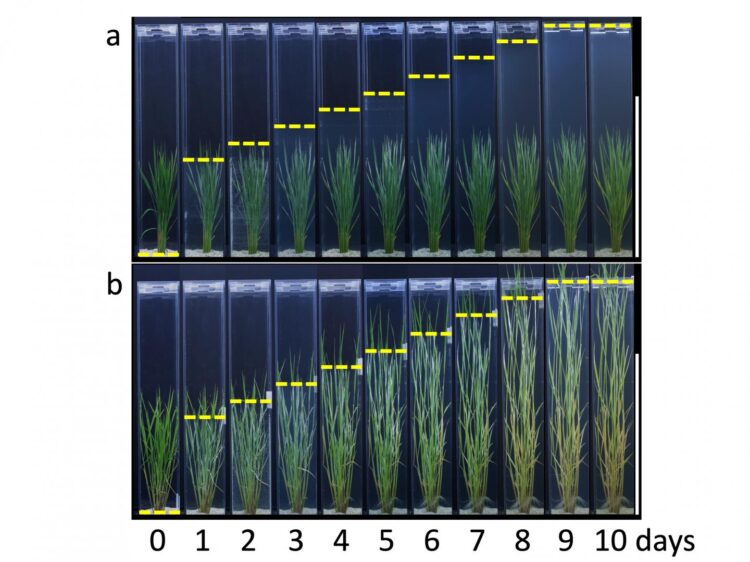
Credit: Motoyuki Ashikari
Scientists at Nagoya University and colleagues in Japan have identified two antagonistic genes involved in rice plant stem growth. Their findings, published in the journal Nature, could lead to new ways for genetically modifying rice crops.
Longer, deepwater rice crops are planted in South Asia and West Africa to survive floods. Shorter paddy rice varieties are widely cultivated worldwide because they are easier to harvest.
A key driver of plant growth is a hormone called gibberellic acid. It activates cell division in the stem tissue, causing the stem to lengthen. Breeders know they can control plant height by stimulating or inhibiting gibberellic acid activity. However, exactly how this works has been unclear.
Bioscientist Motoyuki Ashikari has been studying the growth and evolution of rice for years. He and a team of researchers conducted genetic studies and identified two genes that are involved in regulating rice plant growth.
“We showed that gibberellic acid is necessary, but not enough, for stem elongation,” says Ashikari.
Interestingly, the two genes, called ACCELERATOR OF INTERNODE ELONGATION 1 (ACE1) and DECELERATOR OF INTERNODE ELONGATION 1 (DEC1), counteract each other as part of the regulation process.
In the presence of gibberellic acid, ACE1 stimulates cell division and elongation of the stem’s ‘internode’ sections in deepwater rice. The shorter paddy rice variety did not have a functional ACE1 gene, but it did have a homologous ACE1-like gene that was switched on to activate stem elongation at a different point of plant development.
DEC1 was found in both the deepwater and paddy rice varieties. Its expression was reduced when deepwater rice plants were placed in deep water or treated with gibberellic acid. However, DEC1 continued to be expressed in paddy rice, even under the same conditions, suggesting this gene helps to suppress stem growth.
“We also found that ACE1 and DEC1 are conserved and functional in other plant species, like barley and other grasses, so our investigations improve understanding of the regulation of stem elongation in members of the Gramineae family that may have similar stem elongation mechanisms,” says Ashikari.
The team next aims to understand stem elongation at the molecular level by identifying factors that are associated with ACE1 and DEC1 expression.
###
The research paper, “Antagonistic regulation of the gibberellic acid response during stem growth in rice,” was published in Nature on July 15, 2020, at DOI: 10.1038/s41586-020-2501-8.
About Nagoya University, Japan
Nagoya University has a history of about 150 years, with its roots in a temporary medical school and hospital established in 1871, and was formally instituted as the last Imperial University of Japan in 1939. Although modest in size compared to the largest universities in Japan, Nagoya University has been pursuing excellence since its founding. Six of the 18 Japanese Nobel Prize-winners since 2000 did all or part of their Nobel Prize-winning work at Nagoya University: four in Physics – Toshihide Maskawa and Makoto Kobayashi in 2008, and Isamu Akasaki and Hiroshi Amano in 2014; and two in Chemistry – Ryoji Noyori in 2001 and Osamu Shimomura in 2008. In mathematics, Shigefumi Mori did his Fields Medal-winning work at the University. A number of other important discoveries have also been made at the University, including the Okazaki DNA Fragments by Reiji and Tsuneko Okazaki in the 1960s; and depletion forces by Sho Asakura and Fumio Oosawa in 1954.
Media Contact
Motoyuki Ashikari
[email protected]
Original Source
http://en.
Related Journal Article
http://dx.





